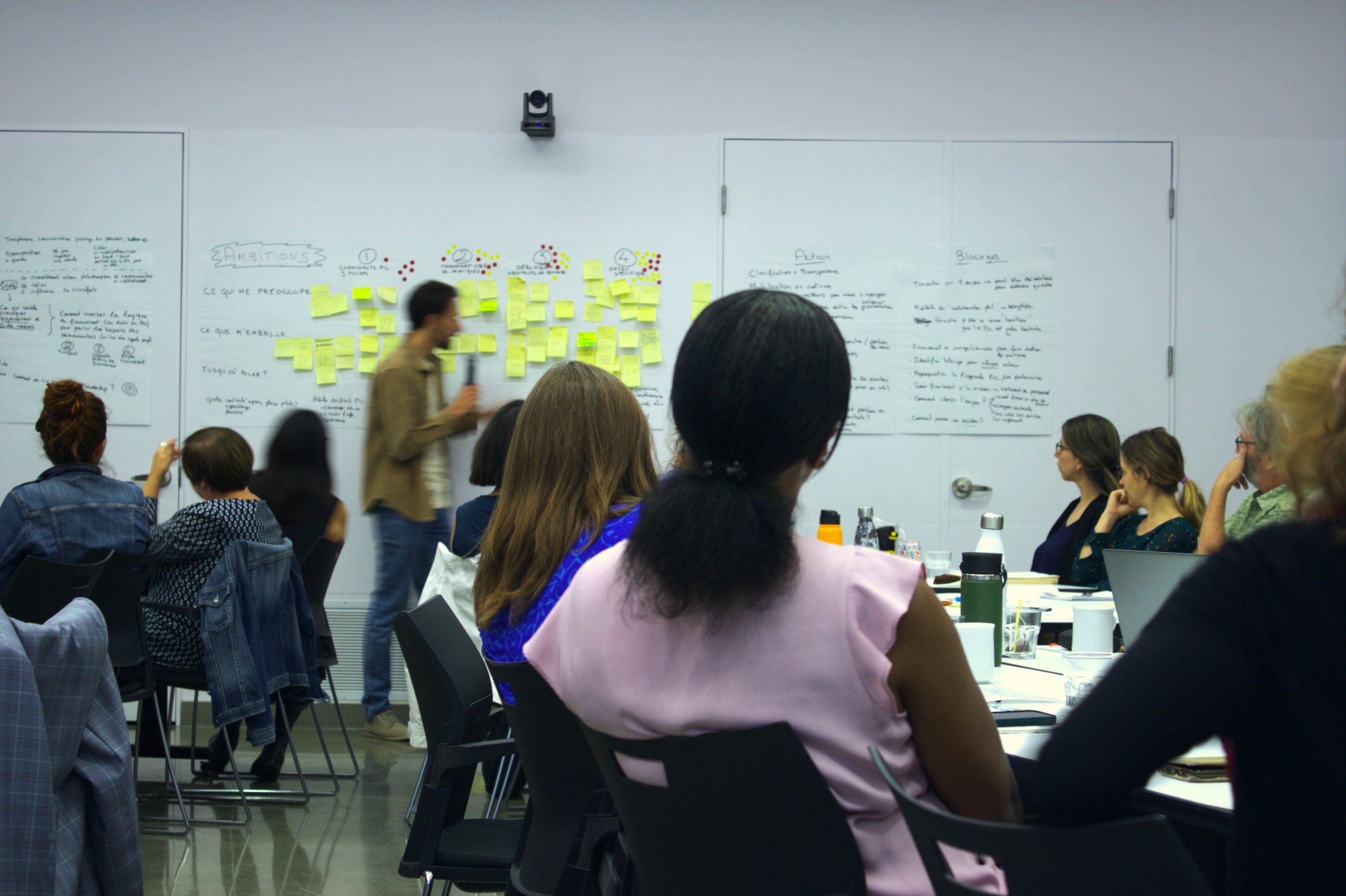Lessons learned from the CIP
Learning and evaluation: A CIP cornerstone!
Documenting the CIP’s lessons is essential
Learning has been a key part of the CIP since the start
As this is an experimental project aimed at implementing new collaborative approaches between philanthropic, institutional and community partners, it is essential for the latter to have the means to step back and reflect on the project's deployment, as well as its processes, limits and spin-offs.
Credit: Valérie Paquette
How does learning take place at the CIP?
-
The CIP stakeholders have learned many things and adapted a great deal since the project started. A key action of theirs has been constantly stepping back to take stock of the project’s strengths and challenges. This is why documenting the lessons learned has been emphasized from the start.
From the early years of phase 1, thanks to the collaboration of partners, the CIP supported the production of research and evaluation reports on the project, based on the experience of stakeholders.
These reports had two objectives:
Understand how far we've come.
Compile the lessons learned to guide the project's next steps.
Over time, the CIP has adjusted, for example, by modifying its governance structure to include broader representation from the community sector.
-
A number of observations quickly emerged from the 2021 review of Phase 1, such as the underutilized potential for collaboration between regional stakeholders and neighbourhood initiatives. In collaboration with the CIP partners, the coordination team developed a vision for Phase 2 in which the relational, experimentation and learning approach are key:
By building on this vision and focusing on learning, even about our own practices, the CIP has evolved in the following ways:
Creation of the “Practice Exchange” series (CIP 2022-2023 Activity Report, p. 39).
Annual reports replaced with mid- and end-of-year meetings (CIP 2022-2023 Activity Report, p. 34).
-
To bring phase 1 to a close, we felt it was essential to take stock of the experience as a whole. In addition to the reports produced by the neighborhood initiative leaders, research and evaluations, the PIC Knowledge and Learning Manager held 23 individual and group interviews with 35 people involved in the project.
In order to take the pulse of the partners and incorporate their comments into the final publication, the preliminary results of the assessment were presented and improved by some 50 partners on June 1, 2023. The report was published in autumn 2023. To consult the report, click here.
Neighbourhood support for learning
Since the start of phase 1, training and coaching aimed at strengthening learning and evaluation skills have been offered to people involved in neighborhood initiatives. Learning is a central notion in the collective impact approach, and training and coaching vary from impact measurement to strategic learning to meet the needs of the community. During phase 1, a strong emphasis was placed on evaluation processes as a learning method. These processes were aimed at evaluating collaborative practices or the effects on individuals. Some neighborhoods, such as Centre-Sud, have made these evaluations available to the public.
However, with phase 2, the notion of evaluation was revised to place greater emphasis on learning, with the aim of removing a weight that was weighing on the neighborhoods. As a result, the service offering was expanded to include coaching so that neighborhoods could choose for themselves which issue they wished to pursue further, be it an evaluation or research process, or one of strategic clarity. In a difficult post-pandemic context, and with the growing influence of of trust-based philanthropy, these are processes that require considerable investment, so it's a good idea for initiatives to address the issue that's most important to their successful development.



